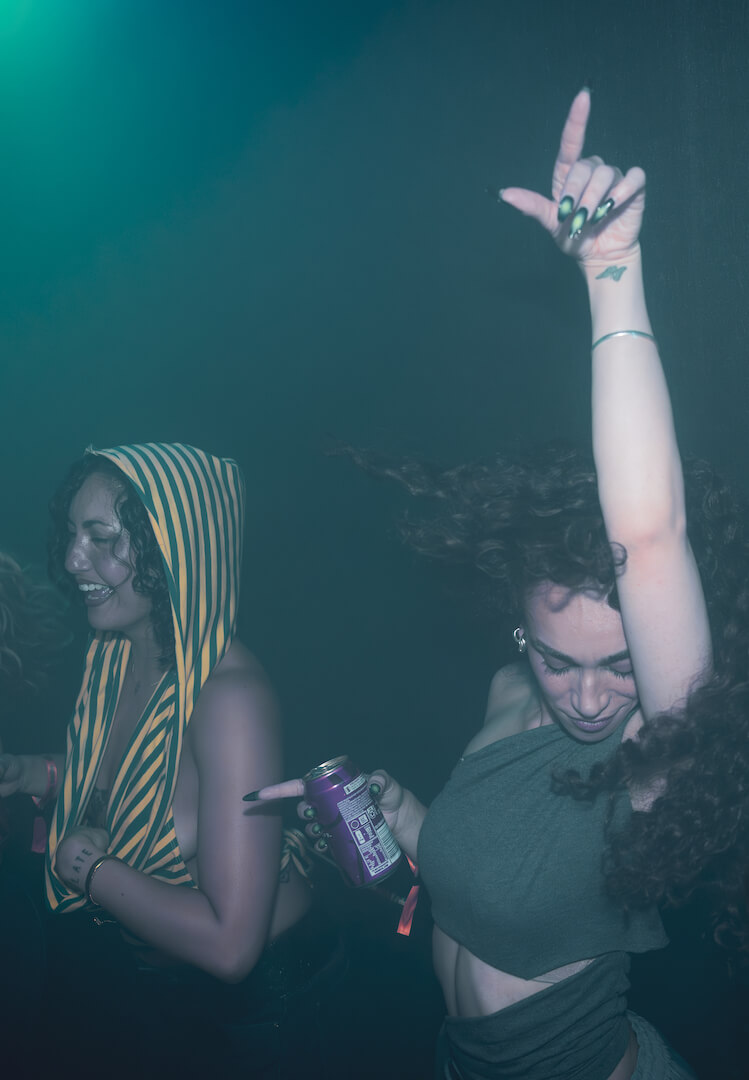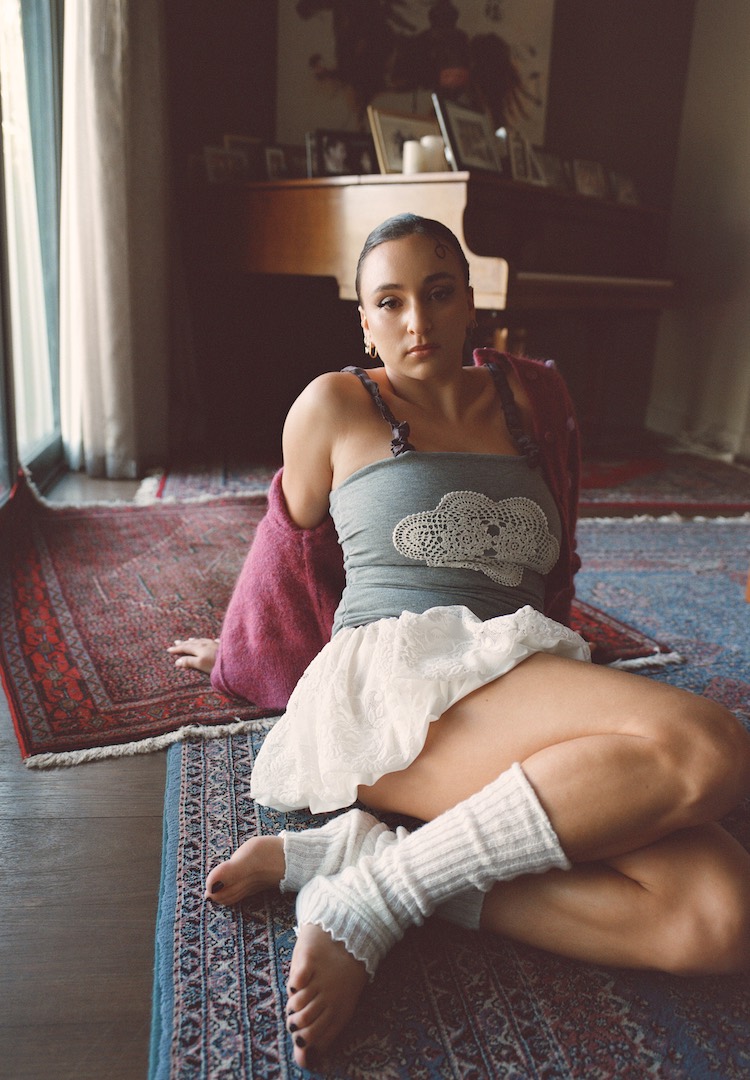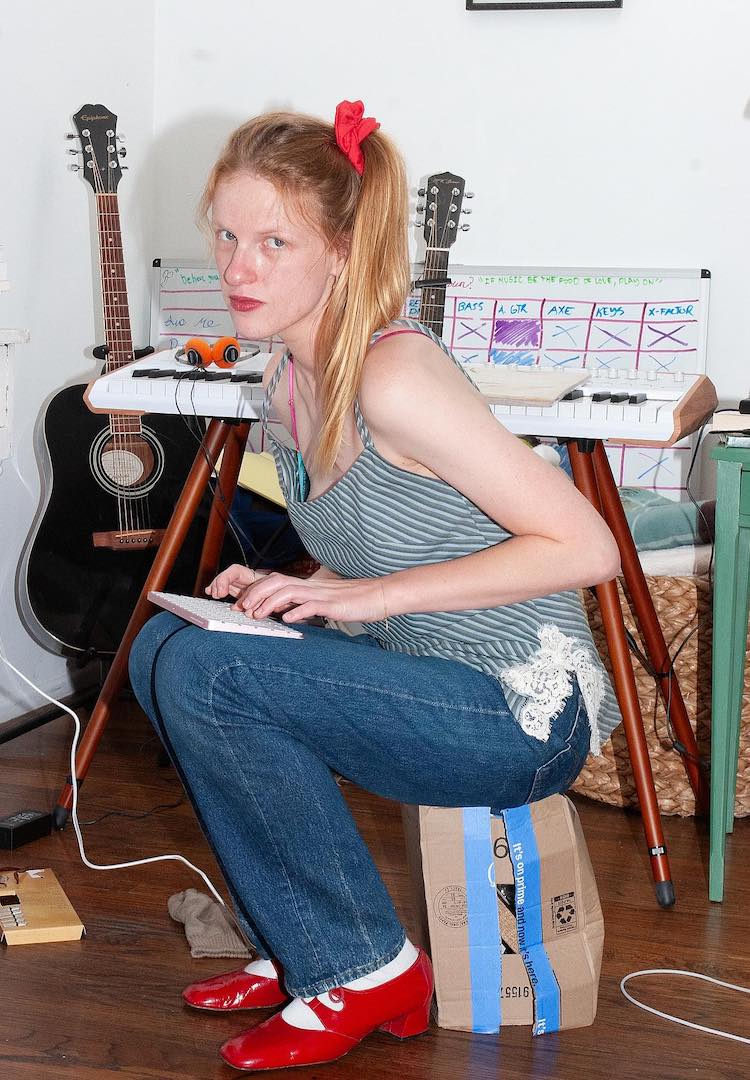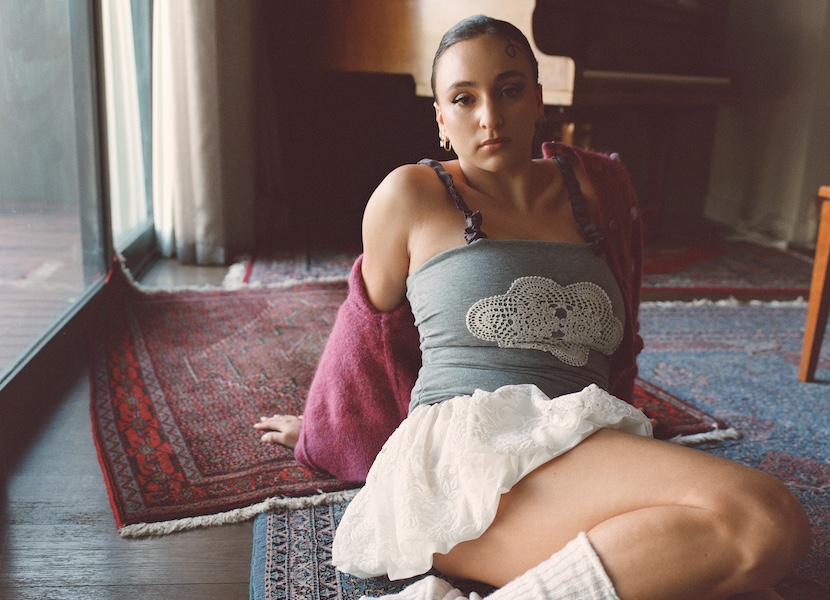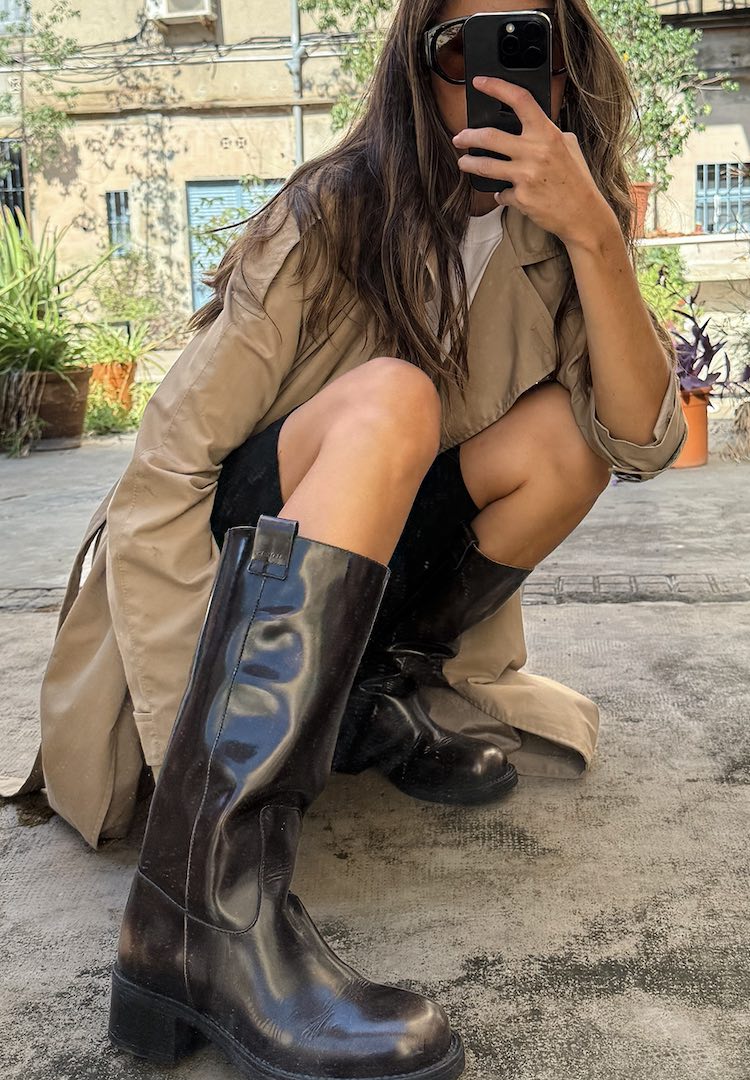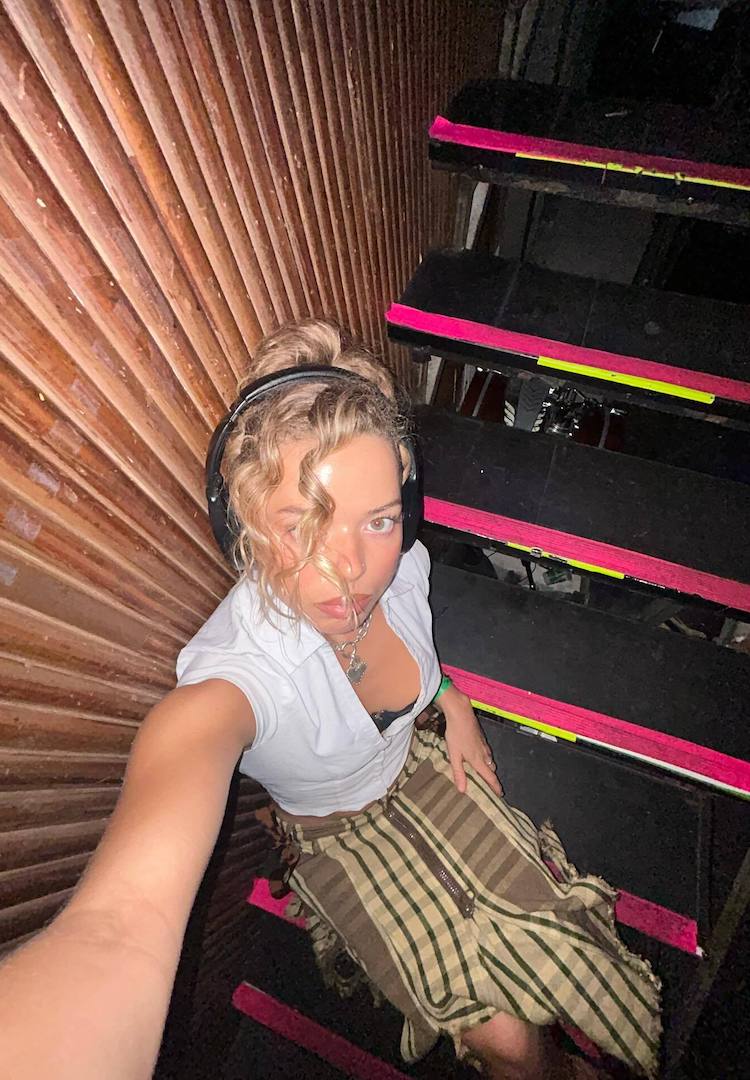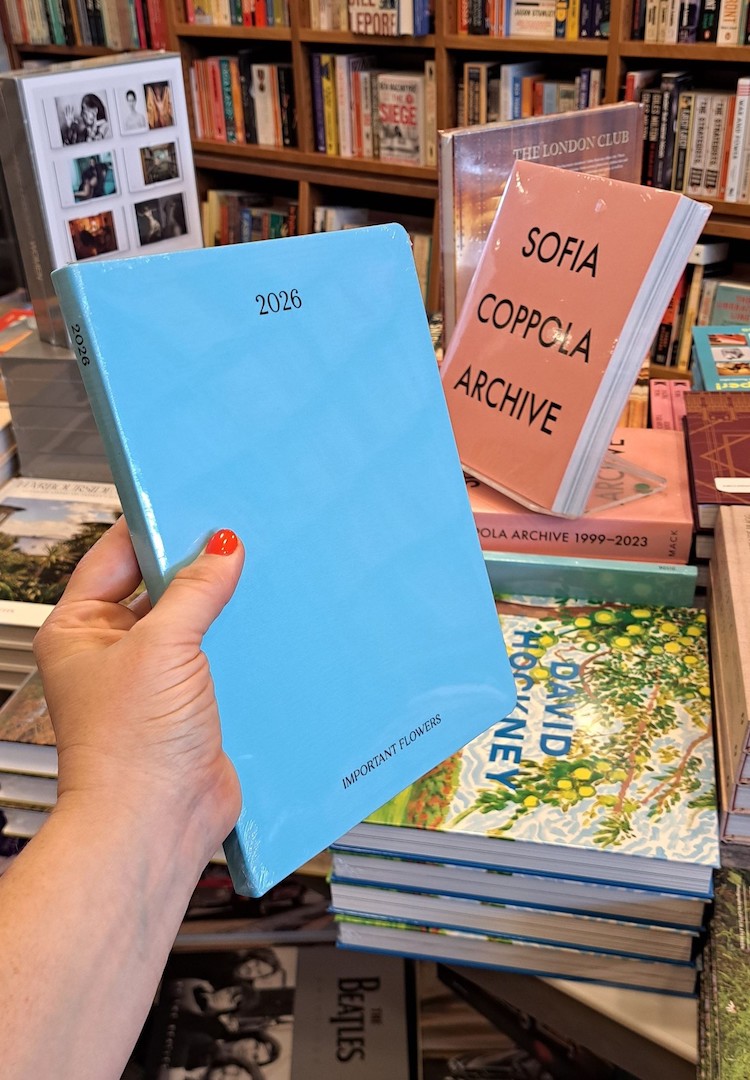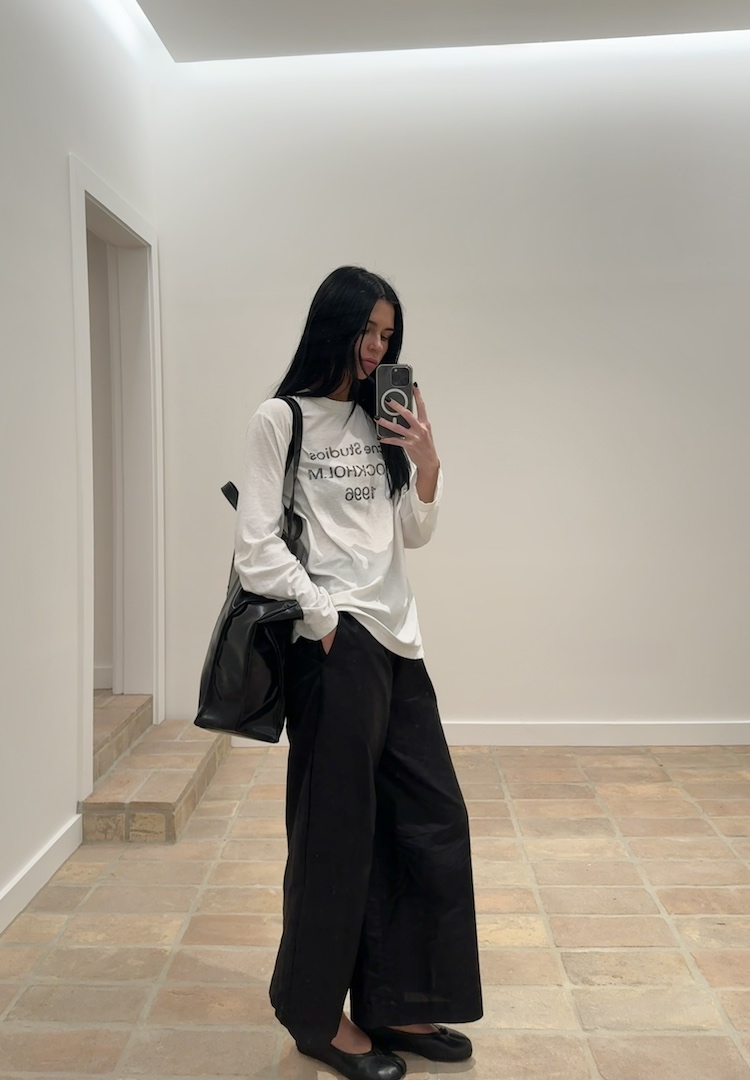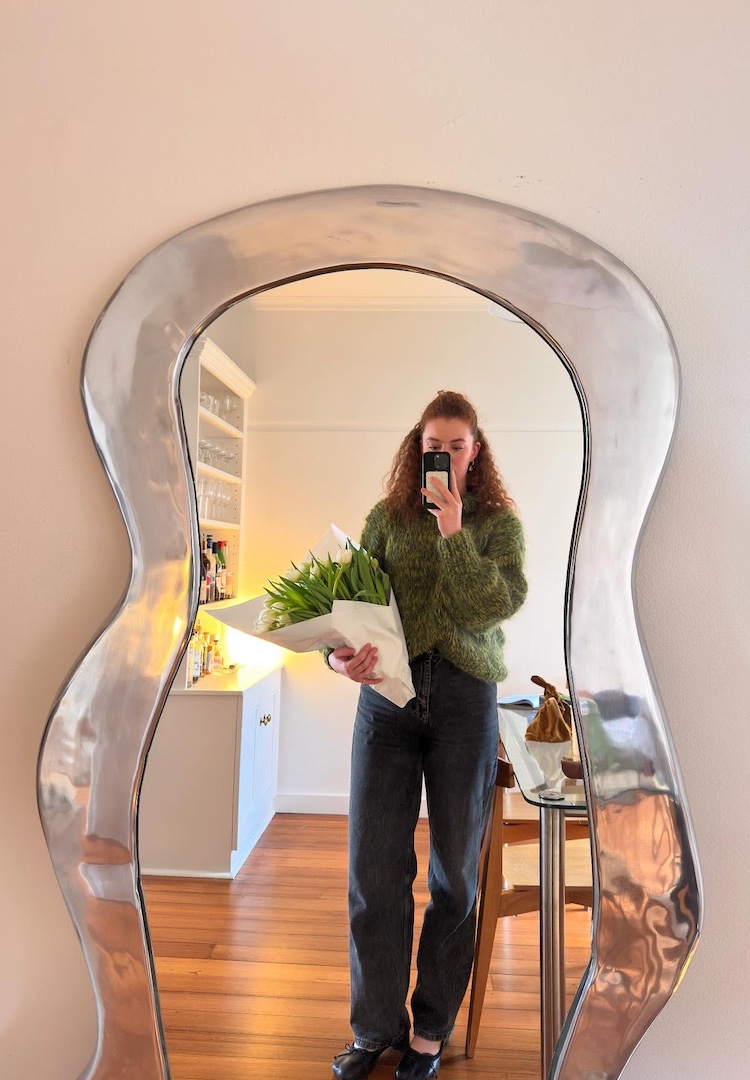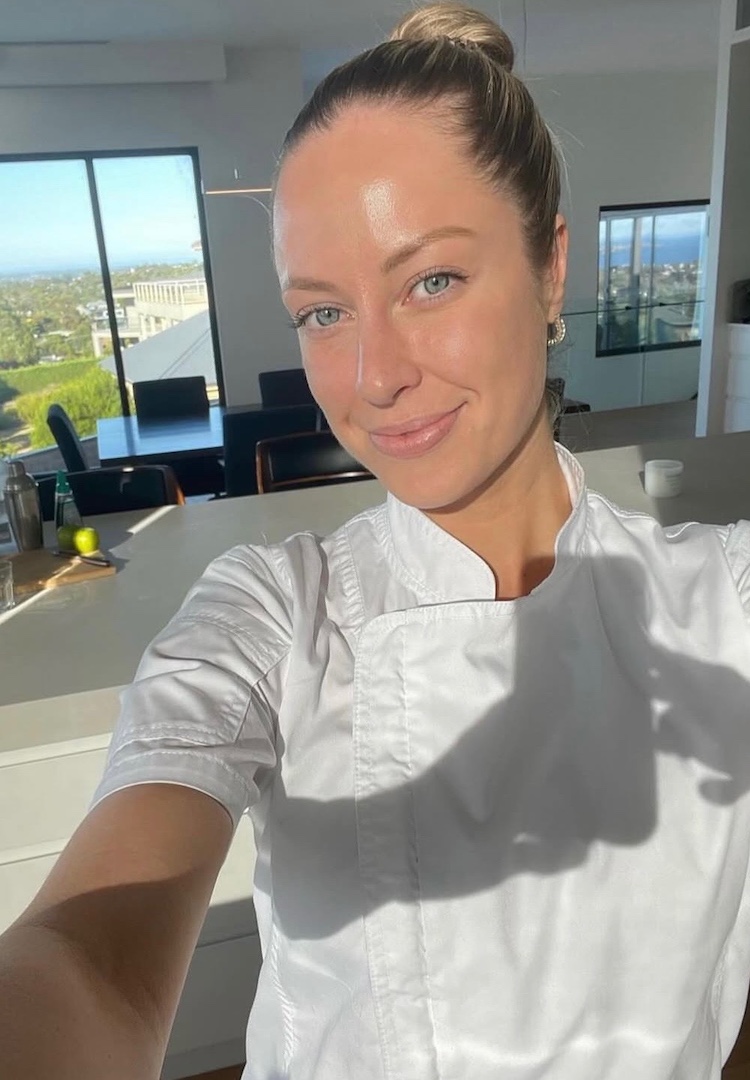Creative control or financial sacrifice? Three musicians on what it’s really like to make it as an indie artist
photography by Britt Murphy
words by daisy henry
“[It] will be the one thing that I will fight tooth and nail for. And I’m so glad I don’t have to.”
To be an indie musician today is to be go, go, go. It’s a tightly packed schedule stacked with release dates, live shows, tour logistics, dragging gear from place to place, interviews, photoshoots, last-minute meetings and, of course, actually finding time to write and record music.
It’s years of adding hyphens to your resume: singer, songwriter, instrumentalist, producer, performer, content creator, creative director. “It’s overwhelming but at the same time, the usual,” says Madeleine Jane Woolley, a singer-songwriter who performs under the name Maddy Jane.
Discover more artists and music we love at FJ’s Music section.
I’ve lined up interviews with three Australian musicians, each having entered the industry through entirely different doors, to get a temperature check on the current landscape for independent artists.
Between closing venues, vanishing festivals and an increasing need to master social media algorithms, I’m curious: How exactly does one forge a career in an industry notorious for its financial instability? And perhaps more importantly, how do you keep hold of the reins without selling your soul (or your masters)?
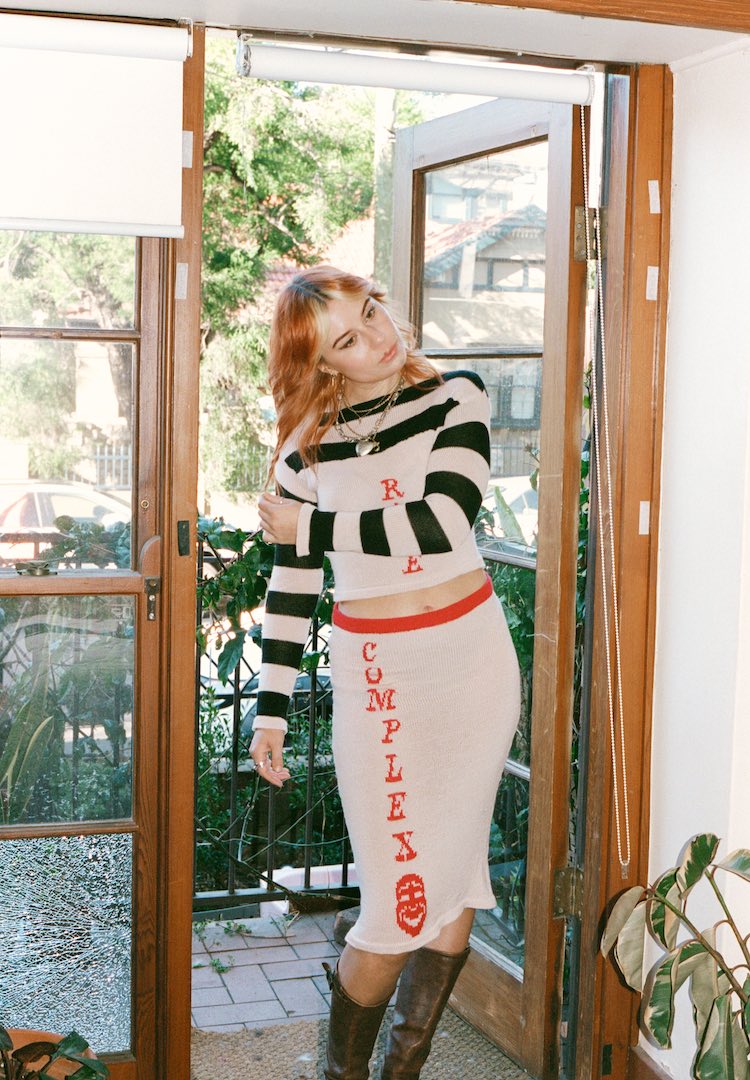
A foot in the door
Hailing from Tasmania’s Bruny Island (“an even more isolated island off the island, off the island”), Maddy Jane has the atypical experience of having worked with a record label early in her career before stepping out on her own.
After an early single, ‘Drown it Out’, earned her a Falls Festival slot and recognition as Triple J Unearthed’s Artist of the Week, industry attention snowballed. First came a manager, then a booking agent and soon after, a deal with a record label. But when her debut album, Not All Bad or Good, came out in the early stages of the 2020 lockdowns, momentum came to a standstill.
“We had spent all that time prepping the album and went, ‘Okay, do we just still release it?’ We had no idea how long any of this was going to go on,” she reflects. Unable to tour, Maddy Jane moved back to Bruny Island to write, and when she eventually returned to Sydney, she and her label parted ways. “I had to relook at everything and work out how I was even going to do it.” ‘It’ being her music career, on her own.
As it turns out, stripping everything back suited her. “I had nothing, so I started writing more songs and it was coming out of me. Maybe not relying on anyone or having anyone to rely on [made me realise] it’s completely up to me, so either make it happen or sit here and feel sorry for yourself.”
When it came time to release her next batch of music, “independent was the only way”. She took creative control, forming a small team that could help bring her vision for her latest EP, Clear as Mud Pt. 1, to life.
Similarly, for Sydney-based musicians Deborah Amenawon and Alessandra Gazal, who go by the stage names Devaura and Gazal respectively, being independent hasn’t meant going it entirely alone. Instead it’s led to signing with teams that let them call the shots creatively and retain ownership of their work.
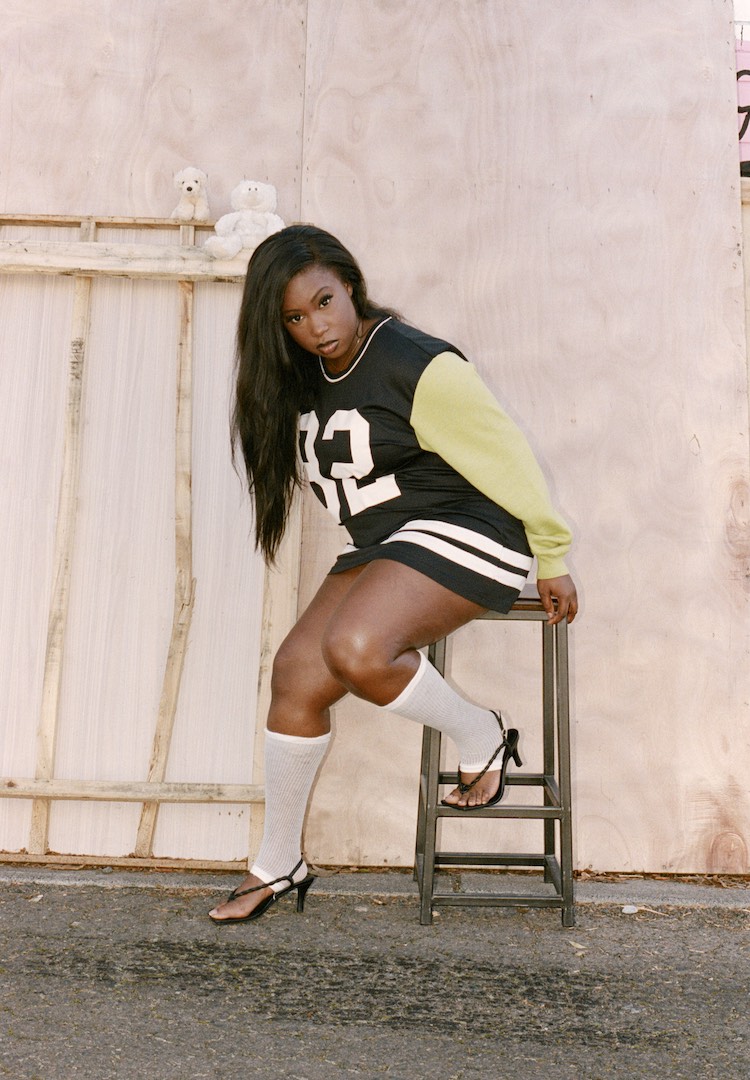
Gazal’s early exposure to music largely involved Arabic or orchestral music drifting through her childhood home. After high school, she taught herself to write, produce and record music, eventually racking up nearly 400 demos in a Sydney studio.
Initially, she was determined to make it as an artist on her own. But after connecting with recording company, AWAL (‘Artists without a Label’), she was able to negotiate a distribution deal, leading to the recent release of her debut EP, Gods Into Frauds. Unlike a traditional record contract, the deal has allowed her to maintain full control and creative license of her work, while AWAL distributes her music.
“As an artist, you second-guess yourself so often, so [having] people back your music – and it doesn’t even need to be monetary, just hearing people fuck with it – is really encouraging,” she says.
For hip-hop and R&B singer Devaura, a career in music didn’t seriously enter the picture until she went to see Yawdoesitall at the Vanguard in Newtown.“It was the first time I saw an Aussie artist live… but also an artist who was black in Australia. And I just couldn’t get enough of it,” she remembers.
Devaura is currently signed to Offbeat Collective, an artist-run and community-driven label. “The creative process is very sacred to me,” she says. “[It] will be the one thing that I will fight tooth and nail for. And I’m so glad I don’t have to.”
Ahead of the release of her debut EP, Vol.1 Learning in Public, her team invited her into every step of the process, from producing to negotiating contracts. “They let me be an active learner,” she tells me. “[They gave] me the confidence to be able to say no and to say yes, even when it might not make sense from a financial perspective.”
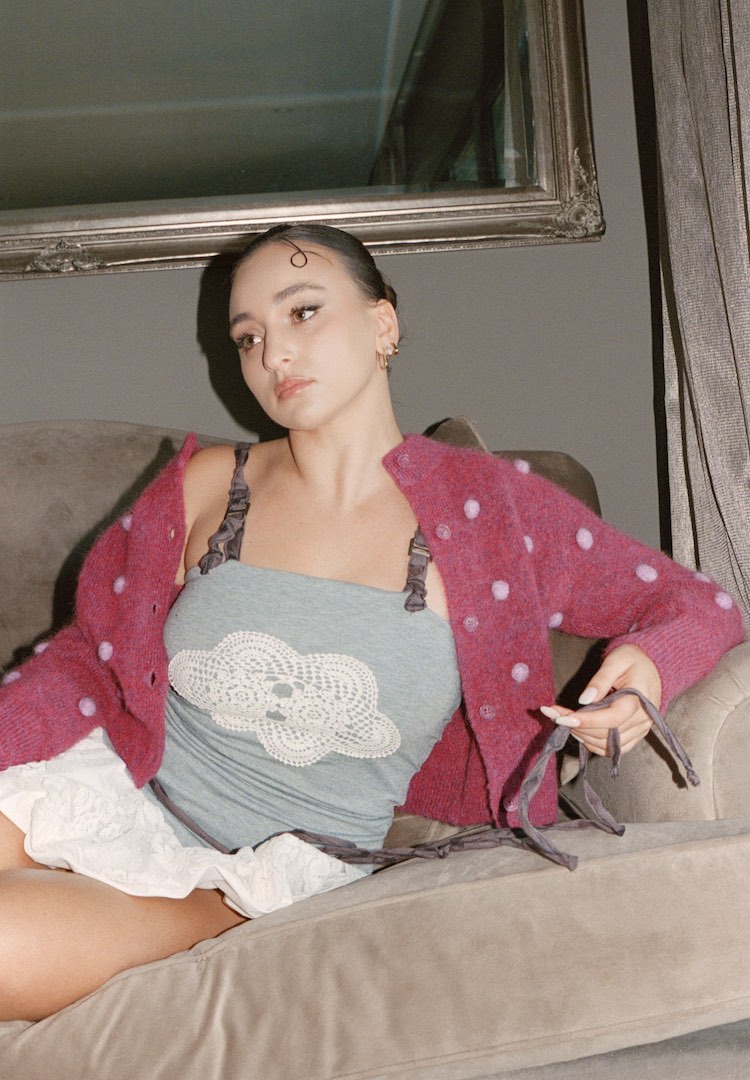
The push and pull
Being an indie artist involves wrestling with a constant tension. There’s more creative freedom, sure, but there’s often a financial sacrifice. “The main thing is money and exposure. You can have all the creative control but maybe not have the money to actually create,” says Maddy Jane.
Plus, doing it yourself inevitably means… you’re doing a lot of it yourself. “You’ve got to be so passionate about it because it’s so much work,” Gazal adds. From writing to creating moodboards and visuals, to maintaining relationships with third-party streaming platforms, there’s a lion’s share of work that goes on behind the scenes, even if you have others supporting you.
Then there’s the expectation that artists are prolific on social media, making the most of TikTok’s algorithms. “You can have all your ideas and your opinions and strategies, but there’s no guarantee [it’ll work],” Maddy Jane tells me. The unpredictable nature of the algorithms means that even the most lo-fi videos can take off and go viral.
“TikTok’s the lottery,” Gazal agrees. Her mentality? “Chuck yourself in the lotto as many times as you want. See what happens.”
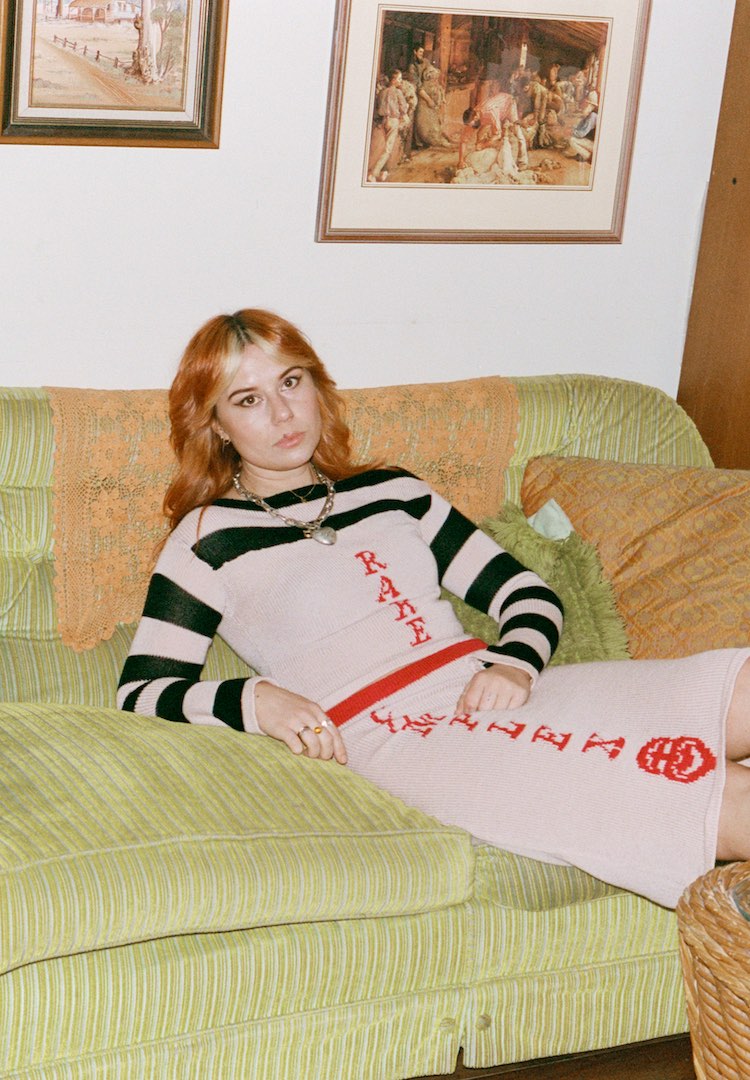
Exposure and momentum, whether from social media, touring or accolades, are key drivers in finding success as an indie artist. But what’s often glossed over is how these external markers can complicate a musician’s trajectory.
Maddy Jane has learnt from experience that even when opportunities arise that feel like a breakthrough, it’s best to view them as a stepping stone, not a golden ticket. She’s supported major acts like Harry Styles and the Red Hot Chilli Peppers, and notes that while these moments lead to visibility, they don’t always translate to long-term success. When she supported the RHCP in Tasmania, the audience was pretty eager for the headliner to take the stage. But for Styles’ fans, attitudes were different. “Harry Styles fans were like, ‘Oh, Harry chose you. We love you.”
For Devaura, the pressure to build momentum is dwarfed by an even greater pressure to keep it going. Over the past year alone, she’s racked up a long list of major achievements: winning the Best Emerging Artist award at SXSW Sydney and the Triple J Unearthed’s Laneway Competition, performing at Party in the Paddock and Dark Mofo in Tasmania, and releasing her debut EP. And she’s already put the finishing touches on a follow-up, If You Don’t Laugh, You’ll Cry, slated for release later this year.
“It’s still a little ‘pinch me’,” she says. “I’m still a little confused as to why everybody is interested… And I think there’s a big part of me that just wants to be worthy of it.”
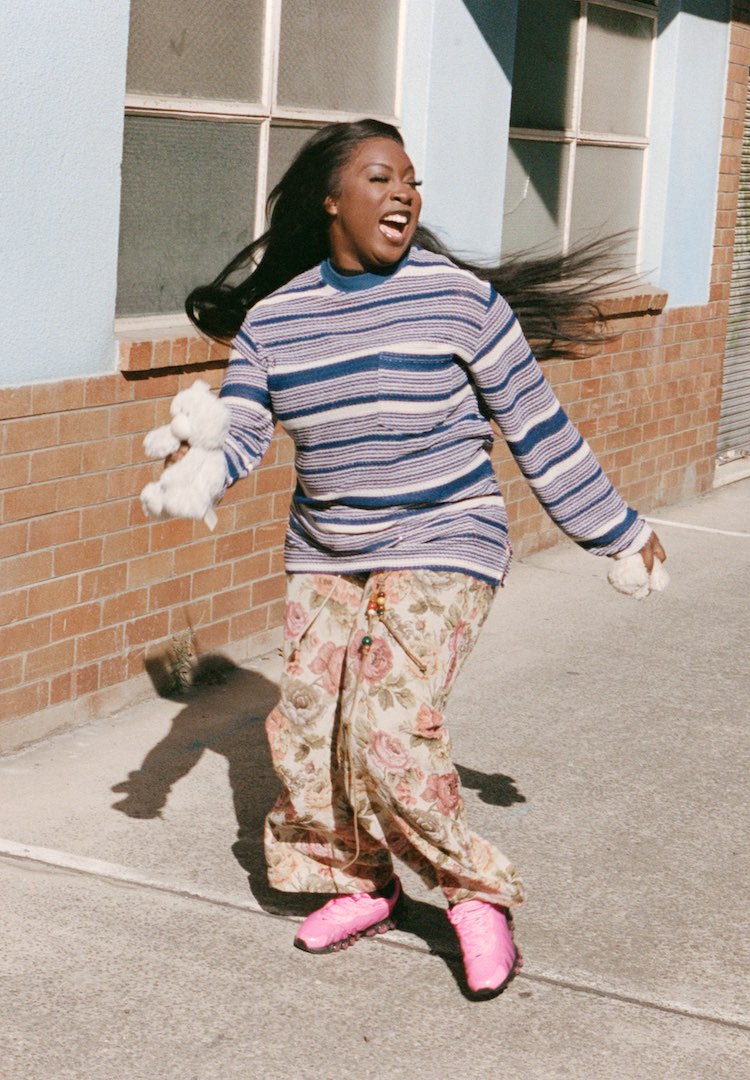
So, what’s missing?
For emerging artists in Australia, there’s always going to be a pull to chase opportunities overseas. Maddy Jane, Gazal and Devaura all agree that in order to build their careers on home soil, there needs to be more local incentives, more funding of the arts, and a stronger infrastructure.
At the most grassroots level, the solution might mean listeners need to start showing up more. Devaura suggests tapping into community radio (think Sydney’s FBi or Melbourne’s Triple R), following musicians you like online and, if you have the means, going to see live music and buying merch.
For these artists, putting on live shows (and seeing people show up) is a key element to sustaining their love for what they do. “What a privilege it is to have anybody spend even a dollar [to see us],” Devaura says. “Even if it’s a free event, they spent their time and energy to be there in that space.”
“It’s all about connection, right?” Maddy adds. “If you can actually connect with people… that’s the most fulfilling thing.”
This article was originally published in Fashion Journal issue 198.
For more on independent music in Australia, head here.

